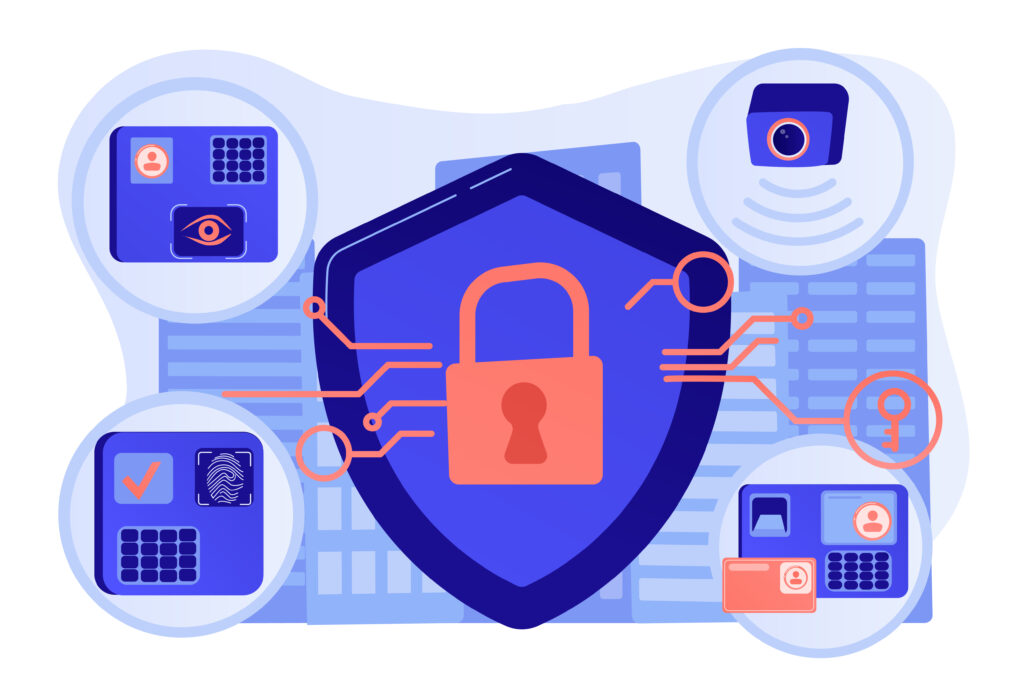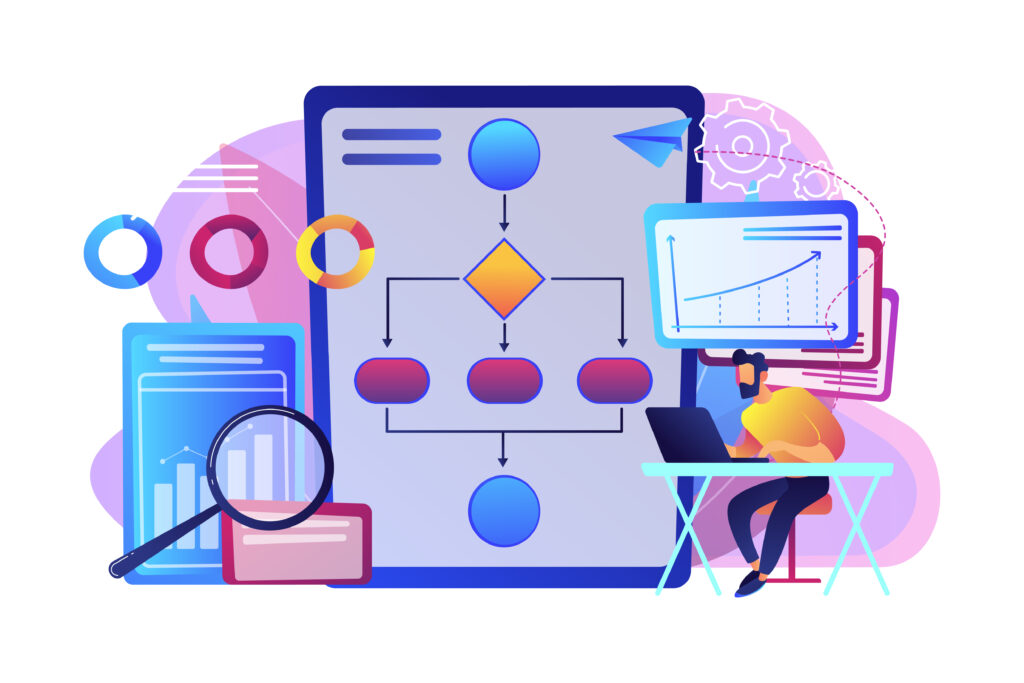Streamlining IT Operations With Outsourced Solutions
When you streamline IT operations with outsourced solutions it can significantly enhance your business. A well functioning IT infrastructure is essential for success, but managing it internally can be time consuming, costly, and require specialized skills.

Outsourcing IT involves delegating IT functions and services to an external provider, covering everything from basic tech support to advanced cybersecurity measures. Here’s how leveraging outsourced IT solutions can benefit your business:
Reduced Costs:
Personnel:
Outsourcing IT operations removes the necessity to recruit, hire, and manage a full-time IT staff. This leads to significant savings on salaries, benefits, and other associated costs, such as health insurance, retirement plans, and employee perks. Additionally, it alleviates the administrative burden of managing employee performance, attendance, and turnover.
Infrastructure:
By outsourcing IT services, businesses can significantly reduce capital expenditures on infrastructure. There is no longer a need to invest heavily in expensive hardware and software licenses or maintain and update these assets regularly. Additionally, costs associated with office space, utilities, and other overhead expenses required to house an inhouse IT department are minimized.
Training:
Continuous training is essential to keep IT staff updated with the latest technologies and best practices. Outsourcing eliminates the ongoing expenses of professional development programs, certifications, workshops, and training courses. This also saves time and resources that would otherwise be spent on ensuring the IT team is adequately skilled and knowledgeable about current trends and threats in the IT landscape.
Improved Efficiency and Expertise:
Focus on Core Business:
By outsourcing IT operations, your internal IT team can be relieved of routine tasks and daily maintenance. This allows them to dedicate their time and effort to strategic projects that drive innovation. This allows you to directly contribute to your core business objectives. This shift in focus can lead to the development of new products, improved customer service, and other initiatives that can significantly impact your company’s growth and success.
Access to a Wider Talent Pool:
Outsourcing IT services gives you access to a team of experts with a diverse set of specialized skills and extensive experience in managing complex IT systems. These professionals are wellversed in the latest technologies and industry best practices, providing your business with highquality service and innovative solutions that may not be available inhouse. This breadth of expertise ensures that your IT infrastructure is robust, secure, and efficient, supporting your business operations effectively.
Scalability:
One of the significant advantages of outsourcing IT is the ability to scale your support services according to your business needs. As your company grows or experiences fluctuations in demand, you can easily increase or decrease your IT support levels without the logistical challenges of hiring new staff or downsizing an existing team.
This flexibility ensures that your IT services are always aligned with your current business requirements, helping you to maintain operational efficiency and control costs.
Enhanced Security and Reliability:

Proactive Maintenance:
Outsourcing partners typically implement comprehensive monitoring and maintenance practices to ensure the smooth functioning of your IT infrastructure. These practices include regular system updates, performance checks, and security audits, all designed to prevent downtime and address potential security vulnerabilities before they can be exploited. This proactive approach minimizes disruptions and helps maintain the reliability of your IT systems. This will allow your business to operate efficiently and securely.
Compliance Expertise:
Outsourcing providers are wellversed in the latest industry regulations and compliance standards, ensuring that your business adheres to all necessary legal and regulatory requirements. They stay uptodate with changes in laws and guidelines, reducing the risk of noncompliance and the associated penalties. By leveraging their expertise, your business can navigate complex compliance landscapes more effectively, safeguarding sensitive data and maintaining customer trust.
Disaster Recovery:
Many outsourcing partners offer robust disaster recovery solutions that ensure your business can quickly recover from unforeseen events, such as natural disasters, cyberattacks, or system failures.
These solutions often include data backup and recovery services, redundancy planning, and business continuity strategies.
By having a comprehensive disaster recovery plan in place, your business can minimize downtime, protect critical data, and maintain operations even in the face of significant disruptions. This enhances the overall reliability and resilience of your IT infrastructure.
Types of IT Operations You Can Outsource:

Help Desk Support:
Outsourcing help desk support allows your business to efficiently manage user queries, troubleshoot technical issues, and provide technical assistance around the clock. This ensures that your employees and customers receive timely and effective support, reducing downtime and enhancing productivity.
Outsourced help desk teams are trained to handle a wide range of issues, from simple password resets to complex software troubleshooting, providing a seamless user experience.
Network Management:
By outsourcing network management, you can ensure that your network infrastructure is continuously monitored, maintained, and optimized for peak performance. This includes tasks such as configuring and updating network devices, monitoring network traffic, and resolving connectivity issues.

Outsourced network management services help to prevent network outages, improve security, and ensure that your network supports your business operations efficiently.
Server Management:
Outsourcing server management ensures the smooth operation and security of your servers and data centers. This includes routine maintenance tasks such as software updates, patch management, and performance monitoring, as well as more complex tasks like server configuration, virtualization, and load balancing.
By relying on external experts, you can ensure that your servers are always running efficiently and securely, reducing the risk of downtime and data loss.
Cloud Services Management
Managing cloudbased infrastructure can be complex and resourceintensive. Outsourcing cloud services management allows you to offload this responsibility to specialized providers who have the expertise to manage cloud resources effectively.
This includes tasks such as cloud architecture design, resource provisioning, cost optimization, and security management. By outsourcing these services, you can leverage the scalability and flexibility of cloud computing without the burden of managing it inhouse.
Security Services:
Cybersecurity is a critical aspect of modern IT operations. Outsourcing security services ensures that robust cybersecurity measures are implemented and maintained to protect your data and systems. This includes services such as threat detection and response, vulnerability assessments, firewall management, and compliance monitoring.
By partnering with external security experts, you can stay ahead of emerging threats and ensure that your IT infrastructure is secure against cyberattacks and data breaches.
Choosing the Right Outsourcing Partner:

Clearly Define Your Needs:
Before selecting an outsourcing partner, thoroughly outline the specific IT tasks and objectives you intend to delegate. This includes identifying areas where external expertise can enhance operational efficiency or address specific challenges within your IT infrastructure.
Clearly defining your needs ensures that potential providers understand your requirements. They can offer tailored solutions that align with your business goals.
Research Potential Providers:
Conduct comprehensive research on potential outsourcing partners to assess their capabilities, track record, and reputation in the industry. Look for providers with proven experience in handling similar projects or serving clients within your industry.
Evaluate their technical expertise, certifications, and adherence to industry standards, such as ISO certifications for quality management and data security. Additionally, you should consider client testimonials, case studies, and references to further gauge their reliability and customer satisfaction levels.
Cost Considerations:
While cost is an important factor, it should not be the sole determinant in selecting an outsourcing partner. Obtain detailed quotes from multiple providers and compare their pricing structures. THis includes fixed fees, variable rates, and pricing models based on service levels or peruser metrics.
Ensure transparency in pricing and inquire about any potential additional costs or hidden fees. Balance cost considerations with the value offered by each provider, including service quality, responsiveness, and scalability of solutions.
Communication and Security:
Effective communication is crucial for successful outsourcing partnerships. Ensure that potential providers offer clear communication channels and establish regular reporting mechanisms. Thi will help to keep you informed about project progress and performance metrics.
Discuss communication protocols, escalation procedures for issues, and the availability of dedicated points of contact within the outsourcing team.
Security Considerations:
Protecting sensitive data and maintaining cybersecurity should be a top priority when selecting an outsourcing partner. Evaluate their security practices, including data encryption methods, access controls, compliance with regulatory requirements (such as GDPR or HIPAA), and incident response protocols.
Seek assurances that the outsourcing provider follows industry best practices for information security and regularly conducts security audits and assessments. Establish a comprehensive security agreement that outlines responsibilities, confidentiality agreements, and measures to mitigate risks associated with outsourcing IT services.
[Want to learn more on how to streamline IT operations with outsourced solutions? Click here to reach us.]
Conclusion
In conclusion, the decision to streamline IT operations through outsourced solutions represents a pivotal strategy. Especially it is better for businesses aiming to enhance efficiency and focus on core objectives. Companies like Bobcares exemplify the benefits of outsourcing IT support services. They offer tailored solutions that optimize infrastructure management while reducing overhead costs.
By partnering with specialized providers, businesses not only gain access to a broader talent pool and robust cybersecurity measures but also ensure scalability and compliance with industry standards. As organizations navigate the complexities of digital transformation, outsourcing IT operations with trusted partners like Bobcares proves essential in driving innovation, maintaining agility, and achieving sustainable growth in today’s dynamic business landscape.







0 Comments